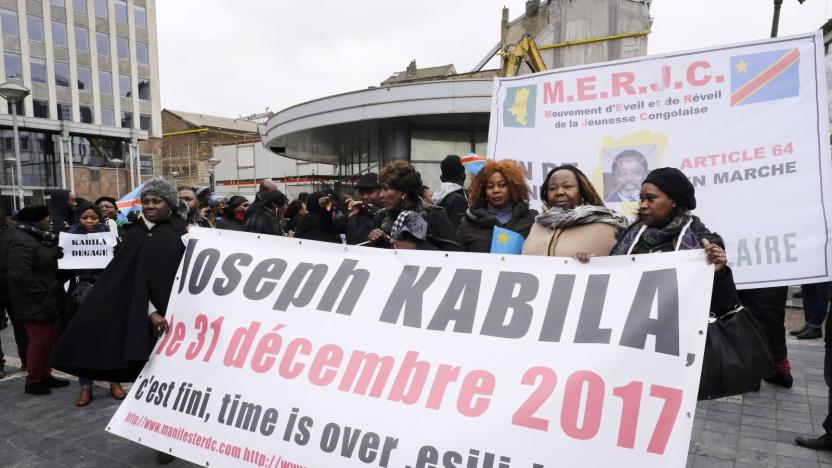democraticrepublicofcongo
Latest

Congo orders cuts to internet and SMS to stifle protests
Authoritarian leaders are fond of severing communications in a bid to hold on to power, and that tradition sadly isn't going away. The Democratic Republic of Congo's government has ordered telecoms to cut internet and SMS access ahead of planned mass protests against President Joseph Kabila, whose administration has continuously delayed elections to replace him. Telecom minister Emery Okundji told Reuters that it was a response to "violence that is being prepared," but people aren't buying that argument. Officials had already banned demonstrations, and the country has history of cutting communications and blocking social network access in a bid to quash dissent.

Apple, Samsung and Sony linked to child labor in Africa
A new report from Amnesty International claims that some of the world's biggest technology and automotive companies are failing to check whether cobalt mined by children is being used in their products. Its joint investigation with African Resources Watch (Afrewatch) suggests that Apple, Huawei, Lenovo, Microsoft, Samsung and Sony are linked to the sale of cobalt used in lithium batteries in smartphones, notebooks and tablets, from mines in Democratic Republic of the Congo (DRC) where children as young as seven are put to work.

Nokia establishes stance on conflict minerals in formal policy
Recent weeks have seen a swell of interest in corporate responsibility, particularly with regard to technology manufacturing and supply chains. Last month, Apple CEO Tim Cook affirmed his company's commitment to ethically and environmentally sound practices, evoking sentiments that were echoed today in a similar announcement from Nokia. Seizing the opportunity to establish some goodwill among socially conscious consumers, the Finnish manufacturer has just released a policy outlining its philosophy on conflict minerals -- metals like gold, tungsten and tin that have played a direct role in fueling civil violence and unrest in the Democratic Republic of Congo. In the document (linked below), Nokia acknowledged that it doesn't play a direct role in obtaining these materials, but emphasized its strict traceability requirements. All suppliers, Nokia says, must provide detailed information on the sourcing of its metals, going back to the smelter phase, at a minimum, and even to the mine itself, if necessary. The company also highlighted its adherence to guidelines established by the EICC-GeSI Extractives Work Group, which both Apple and Intel have already joined. Granted, it's impossible for a single company to wipe out civil strife and human rights abuses in one fell swoop, but with this codified approach, Nokia hopes to at least "increase transparency, ensure responsible procurement by our suppliers and sub-suppliers, and drive positive change."

Democratic Republic of Congo bans text messaging
After a controversial presidential election that saw Joseph Kabila retain the office amid fierce protests, the Democratic Republic of Congo has shut down the nation's text messaging services in order to restore public order. Civil liberties concerns aside, it's proving to be highly dangerous for the one point four million deaf residents who rely on text messaging. Normally they would receive safety signals when conflict broke out in their vicinity -- leading to people being caught unawares in crossfires who would otherwise have remained indoors. Human Rights organization ASADHO has said the crackdown could lead to further deaths, especially for people in remote areas and has joined numerous others in requesting the repeal of the ban.



